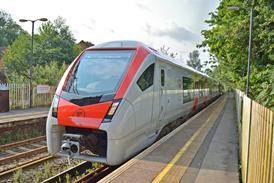WHILE EUROPE's politicians wrestle with ways to introduce competition between operators (below), the national railways continue in their slow march towards a series of alliances. Earlier rumours about Danish State Railways' freight business, DSB Gods, were confirmed on December 15 when it joined the Railion holding group formed by German Railways and Netherlands Railways. Under the deal DB holds 92% of Railion, NS Group 6% and DSB 2%.
Closer co-operation with better sales and marketing are envisaged, and in the long term multi-system locos and through working of crews will allow faster and more reliable services. It is not yet clear how effective the Dutch-German alliance has been, but if it succeeds in breaking down the barriers that hinder international rail freight, it will be welcome.
DB Cargo's internal structure is set for change too, following the announcement of a fresh strategy by DB Chairman Hartmut Mehdorn in Frankfurt on November 22. Called MORA C (Market Oriented Cargo Service), it sets a target of 120 billion tonne-km in 2020 compared with the current 75 billion. Around DM5bn is being spent by 2004 on more modern motive power and wagons, improved communications and better quality control. Considerable investment is planned to develop bulk traffics, which are still seen as offering good opportunities for growth. Second string is intermodal, which Mehdorn says will be 'central to our investment policy'; he sees 'enormous potential' for container services.
An analysis of DB Cargo's business found that 320 large customers generated DM4·8bn or 85% of turnover, with the other 15% spread over 7000 smaller clients which have limited growth prospects. Wagonload services are seen as no longer meeting the demands of customers, who increasingly want a full logistics package. DB is instigating a major review of what it offers smaller customers, in each case examining whether they would be served more cheaply using a non-federal railway, a container service, or a lorry taking traffic to a main terminal. DB is also reviewing its 2100 freight terminals and depots, the aim being to concentrate traffic at fewer locations. Savings of DM500m a year are expected.
Further south, the planned tie-up between the freight businesses of Swiss Federal and Italian State Railways to form Cargo SI is now firmly on hold. The two railways have withdrawn their merger application to the European competition authorities in Brussels, and while they maintain that merging is still a long-term goal, it is clear that the EU requirements are more onerous than expected. Combined with the difficulties already encountered (RG 11.00 p706), the two had no option but to pull back.




















